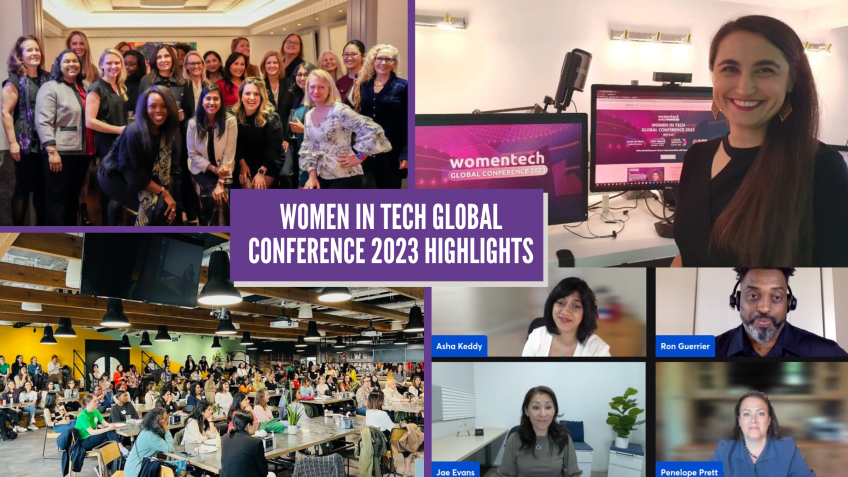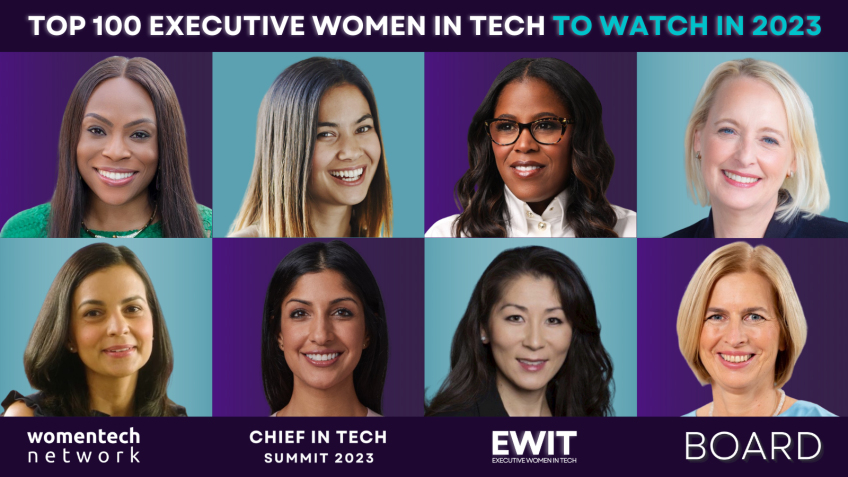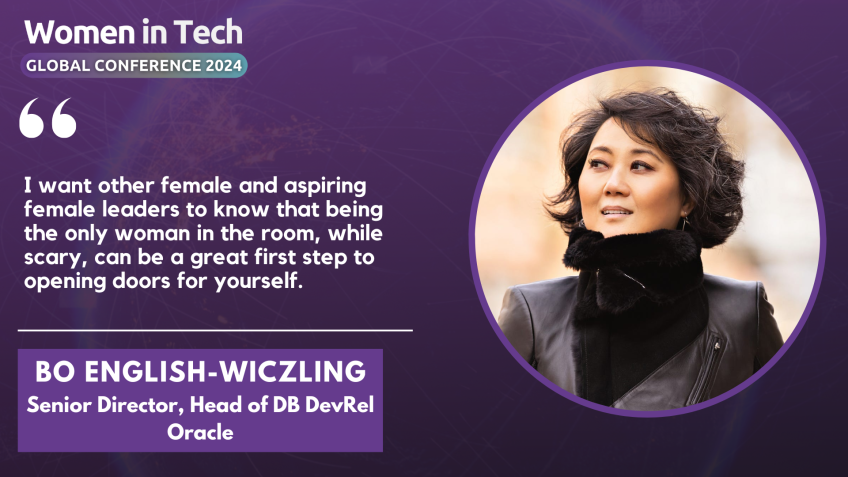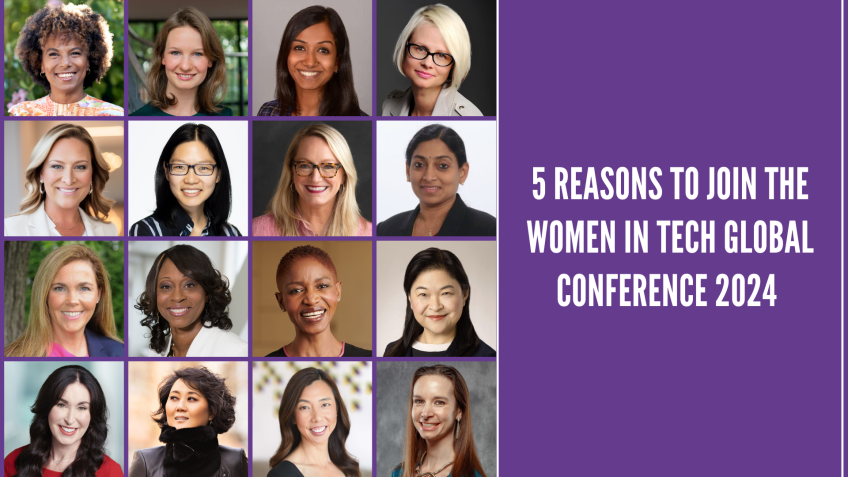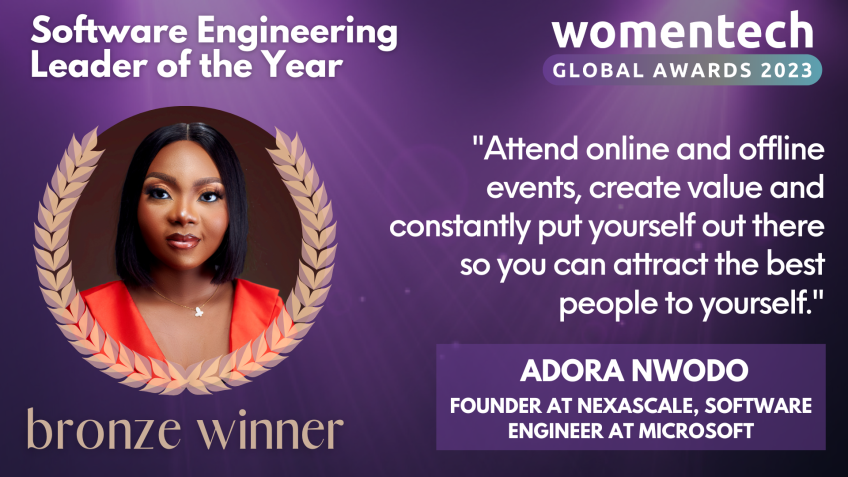ZABEEN MIRZA - Why Diversity is Good for Business
The Importance of Diversity, Inclusivity, and Equity in Business
Good morning, good afternoon, and good evening to all, depending on where in the world you find yourself today. My name is Zen Mirza, founder and CEO of Jobs Do Mom. In this post, we'll discuss not only what diversity, inclusivity, and equity mean but also why they're good for business and how they can breed innovation. Furthermore, we'll examine how to utilize these principles for business profitability, sustainability, and success.
The Jobs Do Mom Journey
To begin with, let's delve into the Jobs Do Mom story. Jobs Do Mom is a tech platform with a mission to provide every woman, and especially every working mother, the ability to work, be promoted, and paid equitably. Our platform ensures that women are free of judgment, discrimination, or bias not only in the hiring process but also in management and promotion. Ultimately, our goal is to ensure every woman and mother who desires to work can do so with an inclusive employer who pays well and promotes her.
This initiative has been born from my personal experiences. I have faced various challenges in my career because of my choices to become a mother. My journey has inspired me to build a platform that supports women in their career paths while also fostering diversity, inclusivity, and equity in the workplace.
Defining DEI
One of the topics we need to understand is DEI - Diversity, Equity, and Inclusivity. Diversity means making sure that every single person, regardless of their backgrounds, is given a platform, opportunity, and voice.
Equity, on the other hand, is about providing different support to people's varied needs to ensure they can access the same opportunity. Inclusivity involves actively seeking a diverse workforce and listening to their ideas.
Why is DEI Good for Business?
DEI isn't just the ethical or moral choice; it's also good for business. By supporting different people with their unique needs, they will perform for your business, producing results and maintaining loyalty. A diverse workforce breeds innovation because diverse thinking is encouraged.
Your people are your competitive advantage. You cannot manage a team of diverse people with the cookie cutter, one size fits all approach - you must acknowledge their distinct needs and perspectives.
Building Innovative Cultures
When building a team, diversity should be at the forefront of your considerations. The goal isn't simply to hire diverse individuals but to also create a culture that allows them to speak freely and present their best ideas. This active implementation of diverse thinking into your business strategy and team culture fosters innovation.
Remember To Be Equitable
As we've mentioned, everyone in your workforce is unique and should not be treated as if they were the same. In the age of post-pandemic remote work, there are no excuses for not investing in flexible and equitable work patterns. If you don't do so, you lose good employees to more accommodating competitors.
In Conclusion
When you go to work, interview for a new job, or lead a team, consider who is benefiting from your decisions, whose voices are being listened to, and who feels left out. How can you ensure the work you're doing is inclusive, diverse, and equitable? Remember, your approach to DEI can influence whether your business succeeds or fails. Thank you for your time - here's to embracing diversity, inclusivity, and equity in all our endeavours.
For more insights and discussions, follow Zen Mirza on Linkedin and visit Jobs Do Mom.
Video Transcription
Everyone. Good morning from New York where I am. Good morning. Good afternoon. Good evening to all of you wherever you might be uh around the world. Thank you so much for joining this session today. My name is Zen Mirza.I am the founder and Chief Executive Officer of Jobs Do Mom. And today I want to speak to you about diversity, inclusivity, equity, but not just about what those words mean, but why it's good for business, how it breeds innovation and how you can utilize diversity, equity and inclusivity for business, profitability and success and sustainability. Ok.
So, um without further ado we'll go ahead and get started at any point. Um If you have a question, please go ahead and put it in the chat box and I will endeavor to answer all of them. I do only have 20 minutes with you. So I will try to make this as quick and impactful as possible. So let's talk about first the Jobs dot Mom story. Ok. Um And this is kind of a brief outline of what we're gonna talk about. Um But the Jobs dot Mom story, what is Jobs dot Mom um of course, we're a tech platform and as its founder, um I always say that it's important to share with everyone that's listening and anyone that's listening the back story, how did something like this start? So you can visit Jobs dot Mom. It's www dot jobs dot mom. Um And when you get on there, you'll quickly understand that Jobs dot Mom has a very clear and distinct mission and our mission was really that we can put every woman, every woman and every working mother and every woman that wants to work back to work, that she should not only be able to work, she should be able to be promoted.
She should be able to get paid equitably. She should be free of judgment, discrimination or bias, not only in the hiring process but in the management process in the promotion process, our goal is really at the end of the day to make sure that every woman and every mother that wants to work can work, can work with an employer that is inclusive, that pays her well.
That will invest in her that will promote her that will remove barriers to her success. And this is really born from my own personal experiences. I have three young Children. My oldest is six, my young, uh my middle is 3.5, my youngest is 10 months old. Um and he was a pandemic baby. And for all three of my Children, I've had three very different experiences with my pregnancy. I've had three very different employers, but my experience was universally the same where I was either let go, I was demoted or I wasn't allowed to take on projects because I, it was believed that I could not handle the workload or it was believed that I wasn't as committed because I had Children.
And when I've gone to interviews, one of the questions that I've been asked was, do you have Children? Are you married? They don't ask my husband those questions. They don't ask men those questions, but they ask me and they ask moms and they ask women and it has to stop. So at jobs that mom, our founding vision and our founding mission was that we connect women to the workplace and we additionally support them with every support service resource that they could possibly need in order to succeed and thrive. Now, my background is in finance, management consulting and professional negotiation. All industries that were overwhelmingly male, overwhelmingly white over overwhelmingly of an older section of the demographic. And there I was younger, I was a woman. I was a woman of color and I was a mother and I had had to fight tooth and nails to carve out even a small niche for myself in each of these industries. And it was hard and I struggled. And despite the fact that I was high performing, the clients loved me, I was extremely profitable. I was still cast aside in favor of those who did not have Children in favor of those who fit a certain mold.
And so I said with Jobs dot Mom and I always joked that this was my longest pregnancy because it was something that I had been thinking about for five years. With Jobs dot Mom, I would create a platform for women that they can easily quickly. Right. And without cost access jobs, employers resume and interview prep services and any type of help that they could need to succeed in their careers. And of course, today's topic is about innovation and inclusivity. And I'm gonna talk to you about how we ensure that every single mother, regardless of race, religion, age, sexual identity, um ethnicity, regardless of any factor is represented. And that the work that we're doing is intersectional because that's the only way that our business can succeed.
So let's first talk about how we identi, how we define what DE I is. Now. You'll hear a lot, especially in the last few years with a lot with a lot of social justice movements and a lot of push for diversity in the workplace, right? De I stands for diversity, equity and inclusivity. Now, diversity isn't a monolith and it doesn't just mean having more black people or having more brown people or having more women. It's not just about age or race or gender or religion. Diversity means making sure that every single person across the spectrum of the human experience, regardless of their backgrounds, regardless of what they look like, regardless of their marital status, regardless of their socio-economic class, regardless of their background, regardless of anything that makes them different, that they are given a platform, an opportunity, a place and a voice.
And it's not just because it's the right thing to do and I talk to employers all the time because a large part of our advocacy work, right is not just making sure that women are connected to jobs. We're a tech platform, we're a job board, right? But it's making sure that employers are honoring that mission to be properly diverse. You can't just hire women and say we're diverse, you're not, you're only diverse when you not only have a workforce that's representative of the population, but that you give everyone in that workforce a voice, you listen to their ideas and you action their thinking otherwise it's just performance theater.
OK? And a very quick note, equity is not the same as equality and a very quick cartoon to highlight that on the left, we see equality where everybody is given the same box to stand on, on the right. We see equity where depending on the different needs of people in your workforce, you provide them the support that they require so that they can have access to the same opportunity. Now, people will say Zine, this is a lot of work, right? It's a lot of work. Of course, it's a lot of work, running a business is a lot of work. Do you not want to make sure the investments that you're making in your people pay off? Of course. So why is de I good for business? Why is diversity inclusivity making sure that your culture includes all sorts of people? Why is equity making sure that different people are supported the way that they need and not just saying everybody is the same, everybody is not the same. You cannot treat everybody the same.
It's because when you give different people with different needs and different backgrounds and different requirements, services and support and the resources that they need to truly perform, what will they do, they will perform for your business, they will produce for your business, they will be motivated for your business, they will stay loyal.
Your people are your competitive advantage. When you have a workforce, that is all the same looks the same from the same, thinks the same. You don't have innovation because you don't have any diversity of thinking. So I always tell the employers if you don't care about the ethics of diversity, if you don't care about the morality of inclusivity, and if you don't honestly care that equity is just the right thing to do. Think about the fact that if you invest in de I it's good for your bottom line, it's good for your business because with diversity and thinking thought process, background experience, education, you have innovation, your people bring ideas that help you to lead the market. And that's what the most successful businesses have in common. They give different people platforms to speak right? And then they manage these teams by giving them access ease and justice. You are fair. You treat them the same consequences are the same. Opportunities are the same pay is the same. You cannot manage a team of diverse people with the cookie cutter, one size fits all approach. It does not work in order to be truly equitable. In order to truly leverage your teams, you must put in the work, which means when you're crafting a business strategy, recognize that your people are your competitive advantage.
If you don't have the right people and you don't treat them well, it doesn't matter if you have the biggest brand, the best product, the best idea, the largest market share, the best market position. It doesn't matter your business will not succeed. Leverage your people celebrate their differences and actively seek your diversity in decision making, try new things, listen to different ideas. You know, there's this old joke, uh and you'll see it all the time. That's a great idea. Managers will say that's a great idea, but we're not gonna do it because it's never been done before. Isn't that the point of innovation? And where are those great ideas coming from? They're coming from your workforce unless you leverage them, celebrate them and actively seek out their perspectives.
You cannot as a business, you cannot as a business, take advantage of that resource. So building innovative cultures. Now, this is something that we are very conscious of at Jobs dot Mom, we're a global company. Um We were born in the US and right now, we're in 10 other countries in the Middle East. We are expanding into Europe and we are then shortly after going to be expanding into Asia Pacific. The biggest thing that I consider when I hire and when we build teams. And this is the same thing that we do when we bring on employers onto the platform is diversity, not just hiring people. And this is a big mistake managers make and a lot of companies make. It's not just about hiring women, not just saying, oh look, X percentage of our workforce are women, X percentage of our workforce are black or brown or uh people of color or gay or lesbian or identify as LGBT Q. That's not what it's about. It's about thinking I'm gonna, I'm going to hire people of diverse backgrounds with different backgrounds and educations and experiences. But I'm also going to create a culture that allows them to speak clear, uh speak freely. It gives them the freedom to fit.
It's a meritocracy where the best ideas win, not the ideas from the person that is the favorite or has been the longest or has the most degrees, the best ideas win. This builds motivation to innovate. And beyond that, it's about actioning ideas, actioning ideas, not just saying, Zine, that's a great idea. Thank you for sharing. But it's a week from now saying Zine, I really like this idea. Can we talk about how we bring this to life? This is absolutely critical. People are not going to contribute their ideas if they feel that you're just collecting them for a show, which a lot of companies are, you know, and, and the drawback of, you know, the performance theater that I call it is not just that you're not taking advantage and your business isn't truly diverse or equitable or innovative uh or, or inclusive, you're not going to be innovative, you're not gonna be able to adapt with the way the world is changing, right?
I have here on the screen, the fall of Giants. Where are those businesses that were titans of industry like Kodak, right? Where, where is um Blackberry? Right? Where, where is Xerox? Where is IBM even? Right? And you'll see a lot of these businesses that are still here today that were Giants have fallen from grace, have become obsolete or have had to completely shift like IBM has, has completely shifted their business, right? If you don't innovate, you will not succeed. And the only way people think people think that, oh my God, you know, to innovate, what are we gonna have to do to innovate, right? It's not just great ideas are born. Where does innovation come from? Where does innovation come from? It can come from anyone it can come from anywhere it could come from any person. Anyone can have a great idea. And the spectrum of ideas you have access to is dependent on your workforce in a business. So you have to recruit diverse workmen uh workforce. You have to actively implement diverse thinking into your business strategy. You have to actively seek out managers that are building cultures for team. And again, remember when I talked to you guys about equity, right? When I talked to you guys about equity, everybody is not the same.
You cannot treat them the same. If I'm a working mother, I'm going to need flexibility. I'm going to need to work remotely. Sometimes I'm gonna need to leave early, come late work in the evening. This is not a detriment to your business. The companies that have dragged their feet on remote and hybrid work for a decade saying it's too expensive. It's not possible. The proof of concept was the coronavirus pandemic where for the last 16 months, companies across all sectors have proven remote work, not only is possible, it's profitable.
There is no excuse to not invest in equitable work patterns in diversity in work cultures, in innovative processes. When you don't, you lose good people and where do those good people go? They go to your competition and you are the loser, right? You are the loser. And so in this very short time that I had, I wasn't able to really hit on all the points that I wanted. But I want to make sure that at least this one thing is very, very clear to all of you that are listening, whether you're in tech, whether you're in law, in medicine, in finance, right? Regardless of whether you're in the public or the private sector, regardless of what level of the organization you're in, at what stage of your career you are in as a woman, as a mother, as a minority, as anyone that is representative of a uh uh that, that is a member of a underrepresent demographic, right?
Whatever that is OK. When you go to work, when you are interviewing for a new job, when you are a manager leading a team, it's never just a black and white approach to anything to say, you know, before pre pandemic prene pretechnology, the thinking was what's gonna make us the most money. It was the best product then it was what's gonna make us the most money, mass producing products, having more products so more people can buy. Now it's who's going to make us the most money and who's gonna make you the most money is your workforce that is representative of the world we live in. It's not an old boys club anymore. Everything that you do have a think about who is this for whose voices are being centered, whose voices are not, who is going to relate to this and who is going to feel left out. How do we make sure that the work that we're doing is inclusive, diverse equitable? Because that's the only way that your business can innovate.
And it's the only way that your business can adapt with any measure of agility in this changing world without diversity, without equity and without inclusivity in your workplace, in your hiring, in your strategy, in your cultures, your business cannot succeed, it cannot thrive, not in tech, not in medicine, not in law, not in agriculture, not in manufacturing, not in any space.
OK? So if you would like to learn more, you can follow me on linkedin, you can follow us at Jobs dot Mom. I do have only one minute left. Um And um I think we are out of time actually, but if you did have any questions and you did wanna follow up, please reach out to me on linkedin. Um And please follow up at Jobs dot Mom. Um Thank you so much for being here. Thanks to all of you for engaging. Thank you for listening to this message. I really hope you will internalize um everything that I spoke about today and really have it apply to your thinking and your approach as you go for it in the world. Thank you so much.

